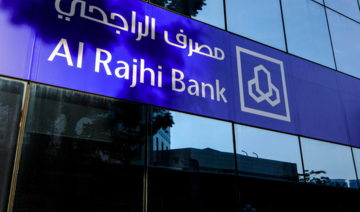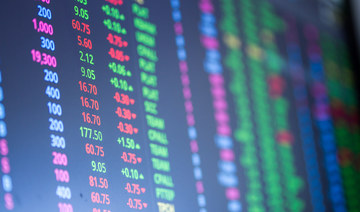WASHINGTON: Harvesting Washington state’s vast fruit orchards each year requires thousands of farmworkers and many of them work illegally in the US.
That system eventually could change dramatically as at least two companies are rushing to get robotic fruit-picking machines to market.
The robotic pickers do not get tired and can work 24 hours a day. “Human pickers are getting scarce,” said Gad Kober, a co-founder of FFRobotics. “Young people do not want to work in farms, and elderly pickers are slowly retiring.”
FFRobotics and Abundant Robotics, of Hayward, California, are racing to get their mechanical pickers to market within the next couple of years.
Harvest has been mechanized for large portions of the agriculture industry such as wheat, corn, green beans and tomatoes for some time. But for more fragile commodities like apples, berries, table grapes and lettuce — where the crop’s appearance is especially important — harvest is still done by hand.
Members of Washington’s $7.5 billion annual agriculture industry have long grappled with labor shortages and depend on workers coming up from Mexico each year to harvest many crops. But President Donald Trump’s hard line against immigrants in the US illegally has many farmers in the country looking for alternative harvest methods. Some have purchased new equipment to try to reduce the number of workers they will need, while others have lobbied politicians to get them to deal with immigration in a way that minimizes harm to their livelihoods.
“Who knows what this administration will do or not do?” said Jim McFerson, head of the Washington State Tree Fruit Research Center (WSTFRC) in Wenatchee. For farmers, “it is a question of survival.”
Washington leads the nation in production of apples and several other crops. Harvest starts in the spring with asparagus and runs until all the apples are off the trees in late fall.
The work is hard and dangerous, and has long drawn Mexican workers to central Washington, where several counties near the Canadian border are now majority-Hispanic. Experienced pickers, who are paid by the bin, can make more than $200 a day.
Advocates for farmworkers say robot pickers will have a negative effect.
The eventual loss of jobs for humans will be huge, said Erik Nicholson of Seattle, an official with the United Farm Workers (UFW) union. He estimated half of the state’s farmworkers are immigrants who are in the country illegally.
But many of them have settled in Washington and are productive members of the community, he said.
“They are scared of losing their jobs to mechanization,” Nicholson said. “A robot is not going to rent a house, buy clothing for their kids, buy food in a grocery and reinvest that money in the local economy.”
While financial details are not available, the builders say the robotic pickers should pay for themselves in two years. That puts the likely cost of the machines in the hundreds of thousands of dollars each.
FFRobotics is developing a machine that has three-fingered grips to grab fruit and twist or clip it from a branch. The machine would have between four and 12 robotic arms, and can pick up to 10,000 apples an hour, Kober said.One machine would be able to harvest a variety of crops, taking 85 to 90 percent of the crop off the trees, Kober said. Humans could pick the rest.
Abundant Robotics is working on a picker that uses suction to vacuum apples off trees.
Plans for the robotic harvesters — including a goal of getting them to market before 2019 — were discussed in February at an international convention of fruit growers in Wenatchee.
The two robot makers are likely to hit their production goals, said Karen Lewis, a Washington State University (WSU) cooperative extension agent who has studied the issue.
“Both of them will be in the field with prototypes this fall,” Lewis said, calling the robotic harvesters a “game changer.”
But for the machines to work, apples and other crops must be grown in new trellis systems that allow robots to see and harvest the fruit, she said.
“We are evolving the tree architecture and apple placement to be compatible with robotics,” Lewis said, a process called “robot-ready.”
Large farming operations likely will be first to adopt the machines, but it might be decades before their use is widespread.
“I think for the next 10 to 20 years, they will be used by some growers to supplement regular picking crews and to serve as a backstop for picker shortages,” said Mike Gempler of the Washington Growers League in Yakima. Reliability and cost will determine if their use expands.
Republican US Rep. Dan Newhouse, whose family owns a large farming operation in Washington’s Yakima Valley, said the industry is deeply interested in alternatives to human labor.
“We are absolutely looking at ways we can increase our efficiency,” said Newhouse, adding his family’s farm each year employs some 120 farmworkers, many of them picking cherries and nectarines.
The industry has no choice but to embrace mechanization, said Mark Powers, president of the Northwest Horticultural Council (NHC), a trade group for farmers in Yakima.
“We do not see some miraculous new source of labor appearing on the horizon,” Powers said. “We think labor will continue to be a scarce resource.”
Robotic fruit pickers may help orchards with worker shortage
Robotic fruit pickers may help orchards with worker shortage
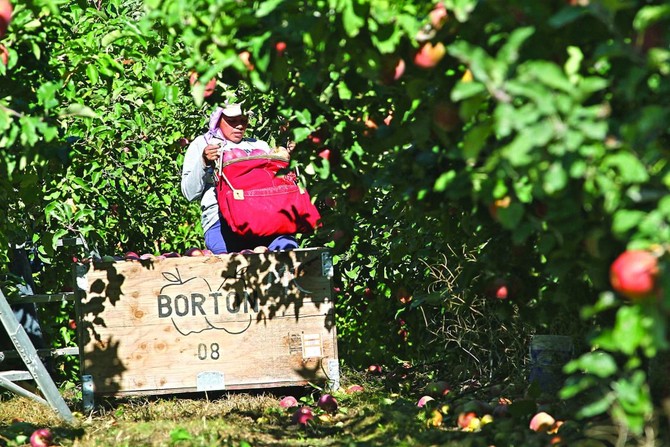
How a Saudi start-up hopes to beat sickle cell disease with an AI-trained gene-editing biorobot

- Sickle cell disease is a genetic blood disorder in which red blood cells are crescent shaped and rigid
- Riyadh-based NanoPalm is combining AI-trained models and nanotechnology to remove faulty genes
RIYADH: Saudi-based biotechnology company NanoPalm is developing a biorobot using a unique blend of artificial intelligence, nanotechnology, and gene therapy to find a solution for patients with sickle cell disease.
Affecting approximately 20 million people worldwide, sickle cell disease is a genetic blood disorder in which red blood cells are crescent shaped and rigid. Patients with sickle cell experience blocked blood vessels, pain, fatigue, and anemia, impacting their well-being.
Founded in 2022, and headquartered in Riyadh, NanoPalm began life at the King Abdulaziz City for Science and Technology (KACST) before it was incubated by the NextEra initiative.

The biotechnology company is run by the Ministry of Communication and Information Technology in partnership with The Garage — once a car park, now a 28,000-square-meter space that can accommodate 300 startups.
Ali Al-Hasan and Samar Al-Sudir, the founders of NanoPalm, have used their expertise to develop a product that goes beyond treating the symptoms of sickle cell. Their aim is to remove the gene from a patient’s body altogether.
With Al-Hasan’s knowledge of nanomedicine and Al-Sudir’s background in chemistry, the pair were able to bring their combined expertise to bear.
The NanoPalm team spent more than a year collecting data to feed into artificial intelligence models, Al-Hasan told Arab News.

“We explored AI and we found it was a long journey where we needed to create our own data and generate the data that will be used to train AI models,” he said.
“It will predict the best gene therapy and predict its safety, its effectiveness, and cut down the duration of the therapy, while making it affordable.
“Discovery is at the heart of any drug development process in any pharma company. Now it has become digitized and AI enabled.”
In the development of their product, NanoPalm uses three technologies: AI to model and predict, nanotechnology to create the medicine, and gene therapy to edit genetic material.
“We use the manufacturing recipe from the AI and then go to the lab to build a lipid biorobot,” said Al-Hasan.
Opinion
This section contains relevant reference points, placed in (Opinion field)
“It’s like a vehicle. And those lipid biorobots encapsulate genetic materials such as mRNA and other RNA molecules, which act like scissors to remove the gene that we want to remove.
“When patients come to the clinic, they usually get an IV infusion of biorobots encapsulating genetic materials for four hours and then go home. The biorobots will then navigate their body and find where the disease is. They go after cells responsible for sickle cell.”

NanoPalm has set out to revolutionize the biotech industry. Al-Hasan said the company’s mission is to make treatment more cost-effective.
“As we dove into this problem, we found two important facts,” he said. “Sickle cell disease is not the only genetic disease. There are 6,000 other genetic diseases that have no known cures.
“The second problem is that the current gene therapies are ineffective. They are super expensive. The patients would have to be rich to afford gene therapies, for example, because sickle cell patients would have to pay $2.2 million to get one injection.”
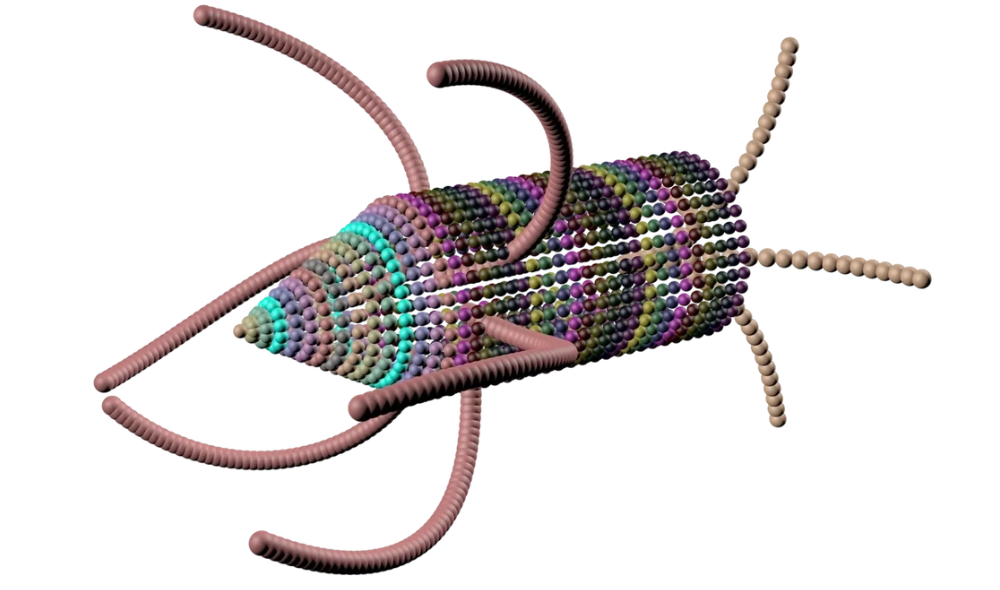
NanoPalm is collaborating with KACST, King Saud University, and the National Guard Hospital to treat 15 sickle cell patients from Saudi Arabia.
Al-Hasan says some 42,000 Saudis stand to benefit from NanoPalm’s product when it is launched in 2030.

China’s exports and imports return to growth
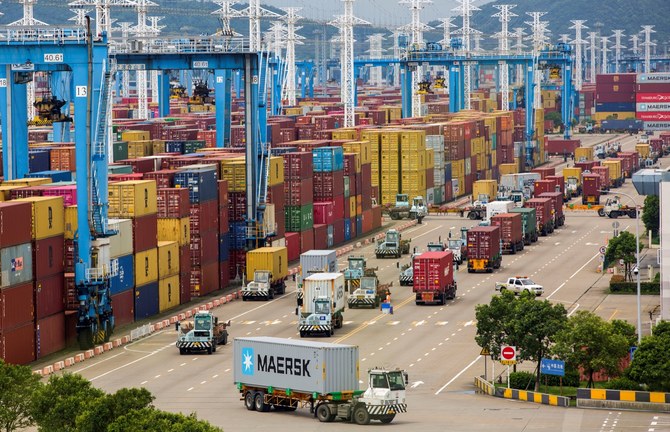
- Shipments from the country grew 1.5 percent last month by value: data
RIYADH: China’s exports and imports returned to growth in April after contracting in the previous month, signaling an encouraging improvement in demand at home and overseas.
The data suggests a flurry of policy support measures over the past several months may be helping to stabilize fragile investor and consumer confidence.
Shipments from China grew 1.5 percent year on year last month by value, customs data showed on Thursday, in line with the increase forecast in a Reuters poll of economists. They fell 7.5 percent in March, which marked the first contraction since November.
Imports for April increased 8.4 percent, beating an expected 4.8 percent rise and reversing a 1.9 percent fall in March.
“Export values returned to growth from contraction last month, but this was mainly due to a lower base for comparison,” said Huang Zichun, China economist at Capital Economics.
“After accounting for changes in export prices and for seasonality, we estimate that export volumes remained broadly unchanged from March,” she added.
In Q1, both imports and exports rose 1.5 percent year on year, buoyed by better-than-expected trade data over the January-February period. But the weak March figures prompted concerns that momentum could be faltering again.
Crude oil imports
China’s crude oil imports rose on the previous year in April, as refiners prepared for a fully recovered Labor Day holiday travel season, official data showed on Thursday.
Crude imports in April totaled 44.72 million tonnes, or about 10.88 million barrels per day, according to data from the General Administration of Customs.
That represented a 5.45 percent increase from the relatively low 10.4 million bpd imported in April 2023.
China saw more than 1.3 billion passenger trips over the five day Labor Day holiday that began on May 1, up 2.1 percent from a year earlier, state media outlet Xinhua reported.
Highway traffic was up 2.1 percent while air trips surged 8.1 percent, Xinhua said.
Domestic airline seat capacity in April was up 1.3 percent on last year, data from consultancy OAG showed.
China’s manufacturing sector continued to see muted recovery in April.
Natural gas imports for April rose 14.7 percent from a year earlier to 10.30 million tonnes, data showed.
Prices of liquefied natural gas for Asia at the end of April were down 11.3 percent on the same period last year, and down 43 percent from last year’s peak in October.
Customs data also showed exports of refined oil products, which include diesel, gasoline, aviation fuel and marine fuel, were up 21.46 percent from a year earlier at 4.55 million tonnes.
Coal imports
China’s coal imports rose in April fueled by lower domestic production and greater buying by power generators to swell stockpiles ahead of the peak summer demand season.
Shipments of coal into the world’s largest consumer of the fuel were 45.25 million tonnes last month, up 11 percent from 40.68 million a year earlier.
That was up by 9.4 percent from March and 2 million tonnes less than December’s record of 47.3 million tonnes.
The boost in imports is partly because domestic coal production has not increased to meet demand, said Feng Dongbin, an analyst with consulting firm Fenwei.
China’s coal output fell 4 percent on the year during the first quarter, the most recent data shows, in part because of a string of deadly accidents that forced mines in the top coal-producing province of Shanxi to halt operations for safety inspections.
Saudi bourse among top 10 in the world in terms of market cap, says official
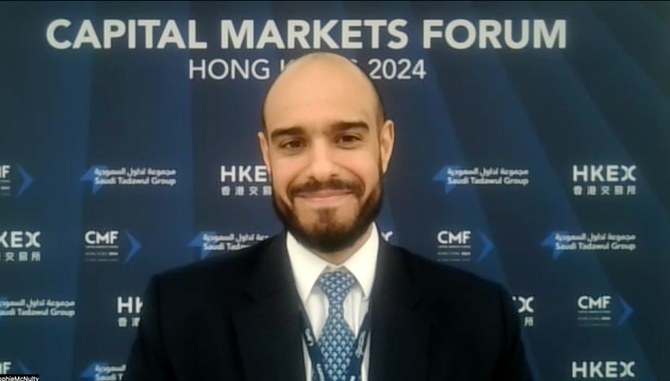
RIYADH: Saudi Tadawul Group finds itself in a “fortunate” position amid the Kingdom’s rapidly growing industries, said a senior executive.
On the sidelines of the Capital Market Forum 2024 held in Hong Kong, Nayef Al-Athel, group chief of sales and marketing officer at Tadawul Group, highlighted the company’s aim to attract global investors by sharing compelling success stories at international forums.
Speaking to Arab News, Al-Athel explained the dual nature of the group’s goals, emphasizing commercial targets focused on maximizing revenues as a listed company.
He said: “I think we are very fortunate as a capital markets group, fortunate in the sense that a lot is going on in the Kingdom. There’s unbelievable momentum in various facets of this country, and we are fortunate to be at the juncture of spillover from all these industries and all these new sectors being unraveled and unveiled in Saudi Arabia.”
Al-Athel added: “The story of the Kingdom of Saudi Arabia is very attractive, and that attraction then translates to us being very attractive as a capital market.”
Additionally, he emphasized Saudi Arabia’s geographic and time zone position, acting as a bridge between the East and West.
“If you take that from a geographical standpoint, time zone perspective, that can be straightforwardly translated into capital markets narratives of connecting East to West,” Al-Athel said.
He added: “If you look at the conference that we’re in here at CMF Hong Kong, it’s literally an attempt, which we think is very successful of us, connecting East to West.”
Commenting on his statement from the previous CMF in February held in Riyadh, Al-Athel explained how Tadawul Group is at the forefront of global capital market leaders.
“We are a top 10 stock exchange when it comes to market cap, to continue to propel ourselves high incomes to market cap rankings. That, of course, means more IPOs and more capital market transactions, more interest from investors all over the world,” he said.
Al-Athel further explained that the group’s success is building itself as an equity capital market powerhouse in Saudi Arabia, particularly through a significant number of IPOs in recent years. There’s a focus on expanding into debt capital markets and derivatives to diversify their offerings.
“We’ve worked hard on building ourselves as an equity capital market powerhouse. The number of IPOs has been staggering over the last three to four years in the Kingdom,” Al-Athel stated.
However, he mentioned that there are currently no specific announcements to make.
“We’re living in a very exciting situation as we speak, hosting 300 investors from 44 companies at the Capital Market Forum in Hong Kong,” said Al-Athel, adding that it’s the first cross-border capital market event, with participation from entities in Saudi such as the CMA and the Ministry of Investment.
He continued: “This is the flavor of where we are at the moment. This is where we are focused. Again, for sure there will be activity in the foreseeable future.”
Furthermore, Al-Athel mentioned that the group has celebrated 400 securities listed on Tadawul.
“Among those 400 listed securities, we find many success stories, and those success stories do sell themselves internationally. We have more than 22 companies traveling with us to Hong Kong, and the sole purpose of those companies, the Saudi corporates, is to tell their success stories to investors from Asia.
Al-Athel concluded his statement by highlighting the significant transformation undergone by the capital market, particularly with the achievement of 400 listed securities and a diverse investor base spanning Saudi Arabia, the region, and globally.
He noted that the rise in institutional investment and increasing numbers of IPOs signal a healthy market environment.
Al Rajhi Bank launches $1bn in perpetual bonds, says document
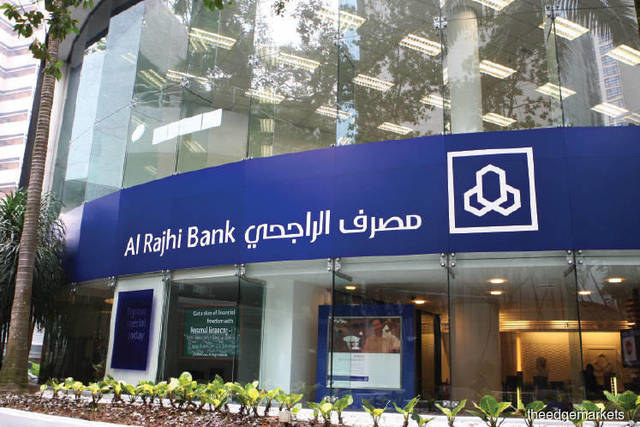
RIYADH: Al Rajhi Bank, the world’s largest Islamic bank by assets and market capitalization, has launched $1 billion in Additional Tier 1 sustainable sukuk, or Islamic bonds, a document from one of the banks arranging the deal revealed on Thursday.
The final yield for the debt transaction was set at 6.375 percent, tighter than the initial guidance of around 6.875 percent released in a document earlier in the day. The notes are perpetual in nature and can first be redeemed in May 2029.
The deal received more than $3.5 billion in orders and allocation is expected to happen later in the day, the document showed.
AT1 bonds, the riskiest debt instruments banks can issue, are designed to be perpetual in nature, but lenders can call them after a specified period.
Closing Bell: Saudi main index slips to close at 12,284
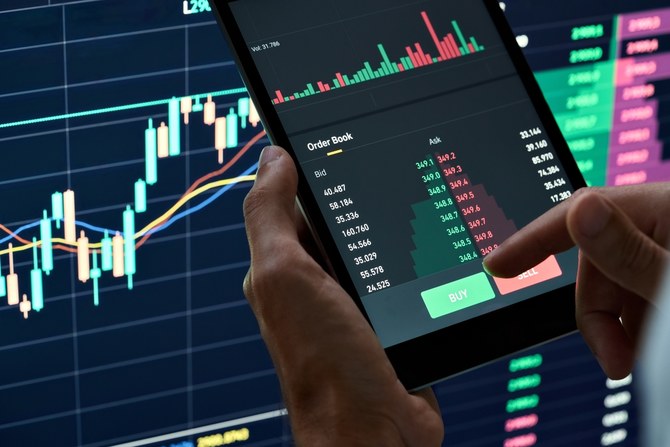
RIYADH: Saudi Arabia’s Tadawul All Share Index slipped on Thursday, losing 175.70 points, or 1.41 percent, to close at 12,284.41.
The total trading turnover of the benchmark index was SR7.31 billion ($1.94 billion) as 41 of the stocks advanced, while 184 retreated.
On the other hand, the Kingdom’s parallel market Nomu rose 199.85 points, or 0.74 percent, to close at 27,086.44. This came as 20 of the stocks advanced, while as many as 45 retreated.
Meanwhile, the MSCI Tadawul Index slipped 19.92 points, or 1.28 percent, to close at 1,537.54.
The best-performing stock of the day was Al-Babtain Power and Telecommunication Co. The company’s share price surged 7.77 percent to SR45.75.
Other top performers include Retal Urban Development Co. as well as Tanmiah Food Co.
The worst performer was Gulf Union Alahlia Cooperative Insurance Co. whose share price dropped by 10 percent to SR22.68.
Other worst performers were Allied Cooperative Insurance Group as well as Al-Etihad Cooperative Insurance Co.
On the announcements front, Jamjoom Pharmaceuticals Factory Co. has announced its interim financial results for the period ending on March 31.
According to a Tadawul statement, the company’s net profit hit SR102.9 million in the first quarter of 2024, reflecting a 22 percent surge when compared to the similar quarter last year.
The increase was mainly driven by an increase in sales, which were slightly offset by the devaluation impact from the Egyptian pound.
Moreover, the National Gas and Industrialization Co. also announced its interim financial results for the first three months of 2024.
A bourse filing revealed that the firm’s net profit reached SR78.6 million by the period ending on March 31, up 7.6 percent in comparison to the corresponding period in 2023.
The increase in net profits is primarily attributed to a surge in gross profit by SR9 million due to increased revenues, alongside a rise in investment and finance income by SR2 million. Additionally, there was an increase in other income by SR1 million, coupled with a decrease in zakat expense by SR2 million.
Furthermore, Modern Mills for Food Products Co. also announced its interim financial results for the first quarter of the year.
According to a Tadawul statement, the company’s net profits climbed 1.3 percent to reach SR64.9 billion in the first three months of 2024 compared to the same period a year earlier.
This rise is mainly owed to revenue growth as well as improving efficiency.
Additionally, Saudi Industrial Investment Group also announced its interim financial results for the period ending on March 31.
A bourse filing revealed that the firm’s net profit stood at SR28 million at the end of the first quarter of 2024, compared to a net loss of SR242 million recorded in the same quarter a year ago.
The increase in net profit is attributed to SIIG’s higher share of profit from joint ventures, coupled with a reduction in zakat expenses.






